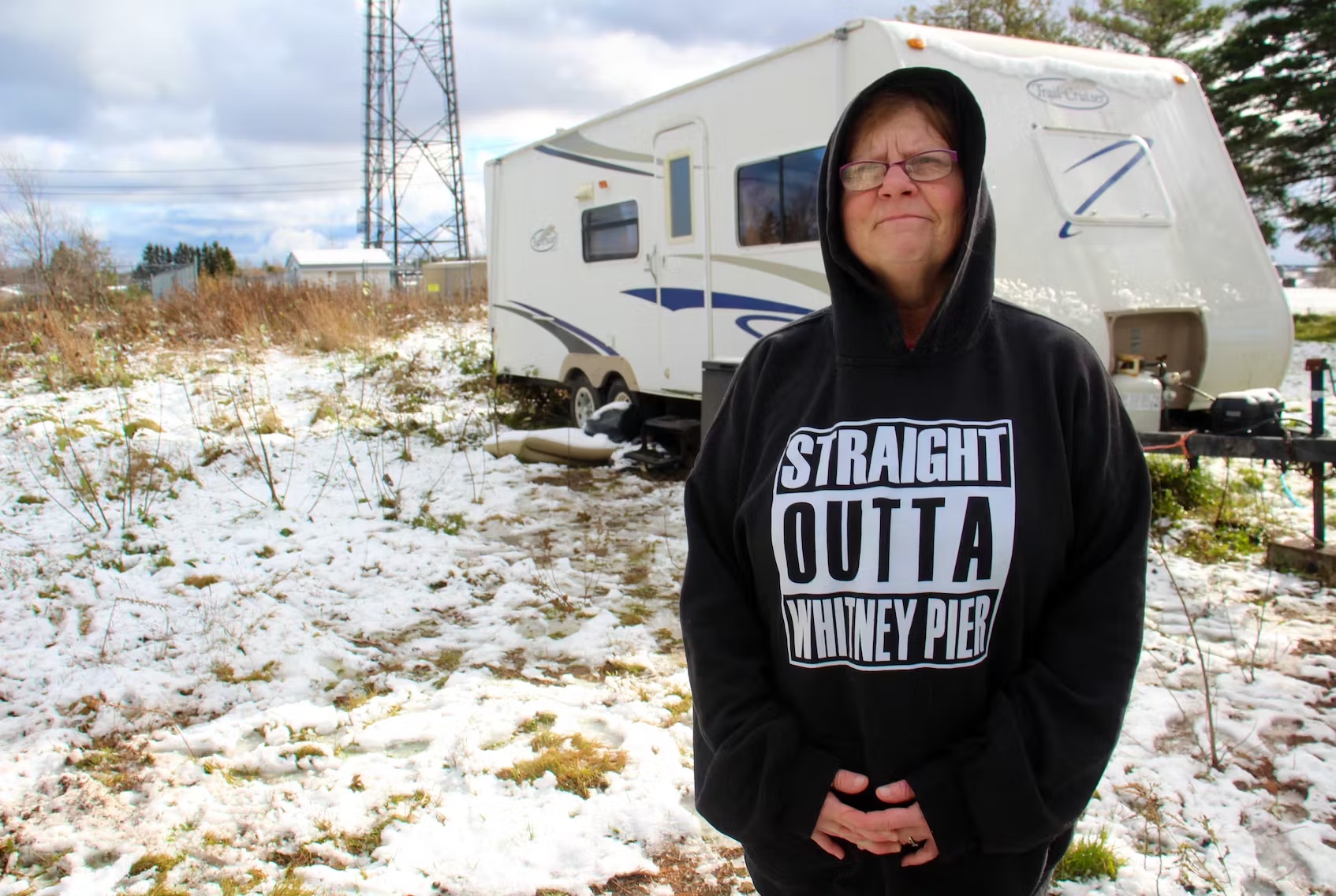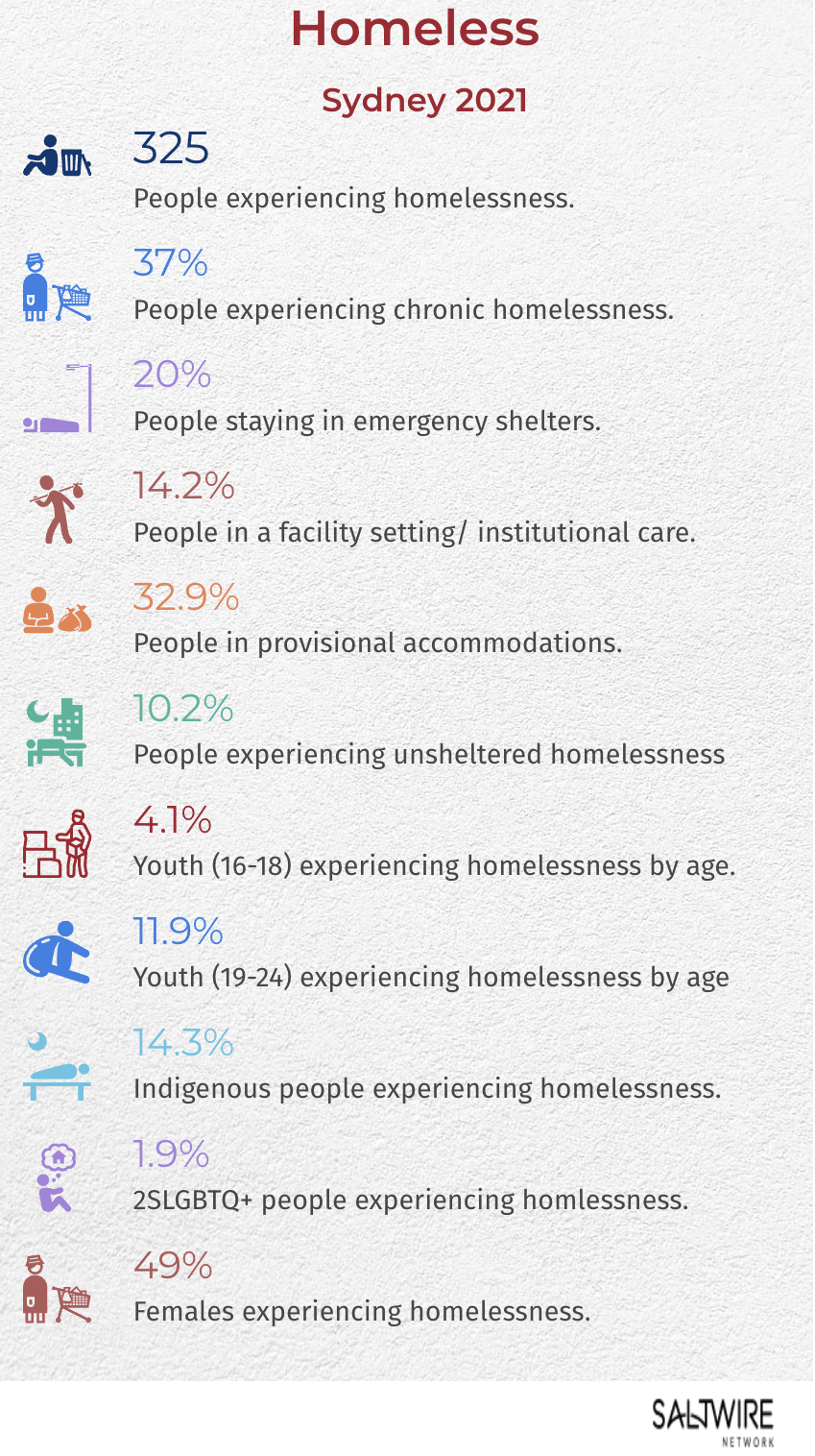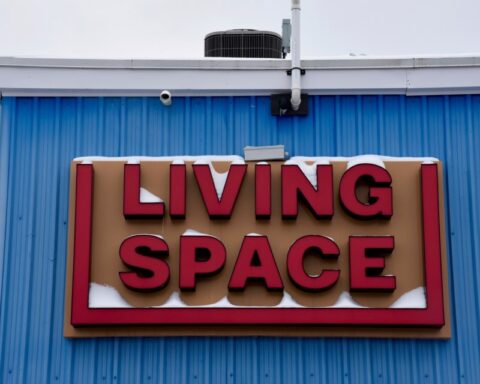This article was influenced in part by an Inclusive Journalism Microcredential offered by New Canadian Media and Seneca Polytechnic. Learn more here. Nicole Sullivan is a reporter with the Cape Breton Post.
SYDNEY, N.S. — Carolann Battiste thought she had a stable home for her and her daughter when she moved into a modest two-bedroom apartment in Sydney in 2022.
Things changed around a year into her renting there, when the landlord issued Battiste a notice to quit on the basis of fearing for her safety in May and began calling in reports about her to police that Battiste said weren’t true.
Even though Battiste, 27, felt the landlord’s behaviour was “bullying and harassment,” she fought to have the right to stay in the apartment.
“There is nowhere to go,” said the Mi’kmaq woman originally from Potlotek First Nation, during her first interview with the Post.
“Even if I wanted to move, there is nowhere to live in Sydney that is good for me and my daughter. If there is a two-bedroom, it’s like $1,200, plus (utilities.)”
Battiste was paying $900 a month rent plus utilities, with a monthly income of $950 from social assistance. The childcare benefit she received covered utilities, groceries, transportation and all other expenses.
Unfounded allegations
In both the notice to quit and the reports to Cape Breton Regional Police, the landlord alleged that Battiste was aggressive and threatening to her.
Police issued a protection of property order on Battiste, which forbade her from going near, causing harm to or intimidating the landlord or her family.
After the protection of property was issued, the landlord called police other times to report Battiste.
The Cape Breton Post was interviewing Battiste at her home when an officer called her to discuss a recent report made by the landlord and heard the call. The officer advised Battiste to stay away from her landlord and indicated they had told the landlord to stop calling in reports.
“It felt like she was trying to do whatever she could to make me feel uncomfortable. Whatever she could, so I would leave,” Battiste said.
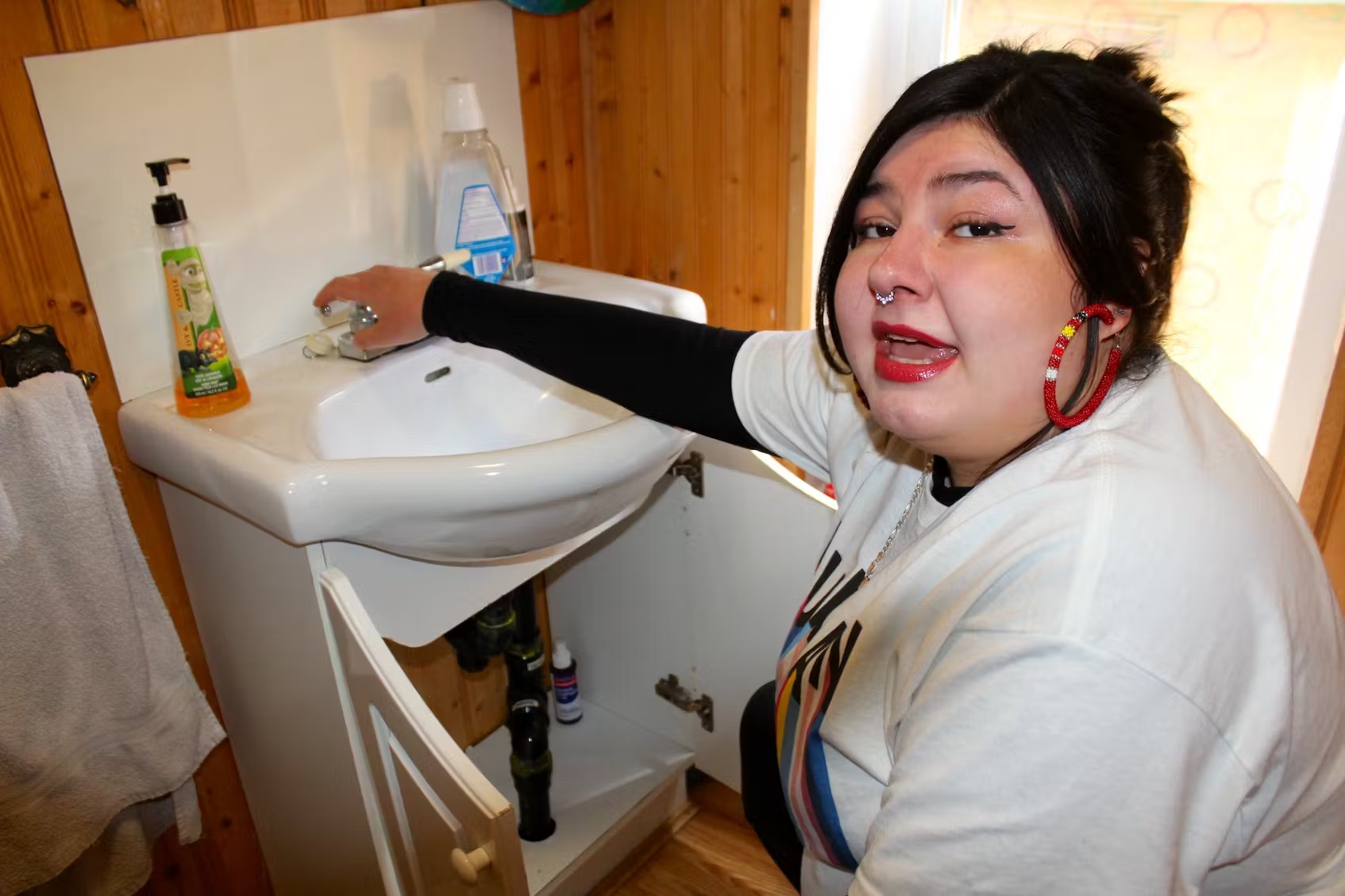
The landlord also filed a peace bond against Battiste, however, postponed or didn’t show up for the first two court dates. Before the third date, after the judge warned the landlord about adjourning again, the landlord called the court to say she wouldn’t be at the peace bond hearing.
Battiste got a call to say the peace bond application was dismissed. All of this on top of the stress of trying to find a new rental unit negatively impacted her mental health.
“I had this little peace bond thing hanging over my head for months,” said Battiste. “I don’t know if it was to scare me or what. But I never had any intentions to be on their property or to physically attack anybody.”
Battiste insists she didn’t do anything the landlord accused her of, including the $2,500 for plumbing repairs, which the landlord alleges is due to a plumbing inspection done by a company Battiste hired.
Since Battiste moved in, there had been issues with the kitchen sink backing up into the shower. The Post saw multiple messages sent to the landlord from Battiste about this issue.
The plumbing company Battiste hired after months of no action by the landlord said in their report the cause of the issues was “The bathroom ground is not plumbed properly and is causing the fixtures to not drain properly”.
Battiste feels the landlord was attempting to pressure her to pay for the costs of redoing the plumbing properly.
Homeless again
Even though Battiste won her appeal against the landlord’s notice to quit in June, Battiste was homeless by November, after the landlord filed an appeal to the decision and won.
The landlord’s appeal was on the basis of needing to move their family into the premises.
The appeal was heard in civil court and the judge ruled in August that Battiste had to vacate on Oct. 31.
Battiste felt powerless throughout the whole situation and still feels no rental unit will be a secure home.
This was also how she felt when the landlord was making reports to police about Battiste’s alleged behaviour.
“It was like she could do or say anything and I am the one who is affected by it, even if it’s not true,” Battiste said.
Vacancy low
According to data compiled by the Canadian Observatory on Homelessness, a non-profit and non-partisan research group, in Sydney in 2022, the apartment vacancy rate was 1.4 per cent.
The data also showed the average rent for a one-bedroom was $713/per month and $871/per month for a two-bedroom.
 After three weeks of couch surfing with two friends, Battiste rented a room in a multi-tenant house. The cost is $750 monthly and she could move in December.
After three weeks of couch surfing with two friends, Battiste rented a room in a multi-tenant house. The cost is $750 monthly and she could move in December.
“I’m going to start here and rebuild again,” she said. “I start school again in January and I’m working hard to better my life for me and my daughter.”
Since her apartment search started in the summer, Battiste said she’s heard back from very few landlords; demand is so high, that landlords can’t respond to all the inquiries.
Shannon Dornadic, 49, said she experienced the same thing since her search for affordable, appropriate housing started in August.
“The apartments are gone as soon as they’re posted,” she said. “And most places won’t take dogs. It’s all rooming houses and I don’t want to live like that.”
Building sold, price up
Originally from Westmount, Dornadic told the Post during an interview on Nov. 14 she moved to New Waterford five years ago after a fire in her building left her displaced.
Dornadic said she receives disability support and the New Waterford apartment was originally $750 inclusive of utilities, which worked for her budget.
When the building her rental was in sold about two years ago, the new owners made the rent exclusive of utilities. Then the rent was raised to $790.
“Even the laundry used to be inclusive and they took that off,” she said. “Now it’s $6 to do your laundry. Everyone started going elsewhere to do their laundry.”
Dornadic fell into rental arrears in June and July, which she said was due to the rising costs and the theft of her phone which she believes resulted in her rent monies for June being stolen through the banking app on it.
The property management for the owners filed a notice to quit because of rental arrears.
A written communication between Dornadic and her “worker” with social services indicated there was an offer to pay the rental arrears for Dornadic to stay in the unit, which was under $900, but this offer was denied.
In August, Dornadic was forced to move out. Unable to find an appropriate affordable home for her, her large dog and her cat, she rented a recreational vehicle (RV) as temporary housing.
At first, she lived in a campground, then moved to a friend’s backyard when the campground closed.
When she spoke with the Cape Breton Post, time was running out on how long she could live in the RV because it wasn’t winterized.
“(The renter) has been really good to me. I understand why he can’t rent it through the winter. If the pipes freeze and break or something else happens, that’s a lot of money for him to repair,” she said.
“They evicted everybody from my old building. I think it was to increase everyone’s rent. My rent when I left was $790 plus utilities. Now it is $1,400 a month.”
Rents have increased across Canada except for the territories. StatsCan (Statistics Canada) has reported that over the past four years, the highest increases have been in Atlantic Canada.
Nova Scotia has the second-highest increases in Canada with 26.3 per cent, behind New Brunswick (28.9 per cent).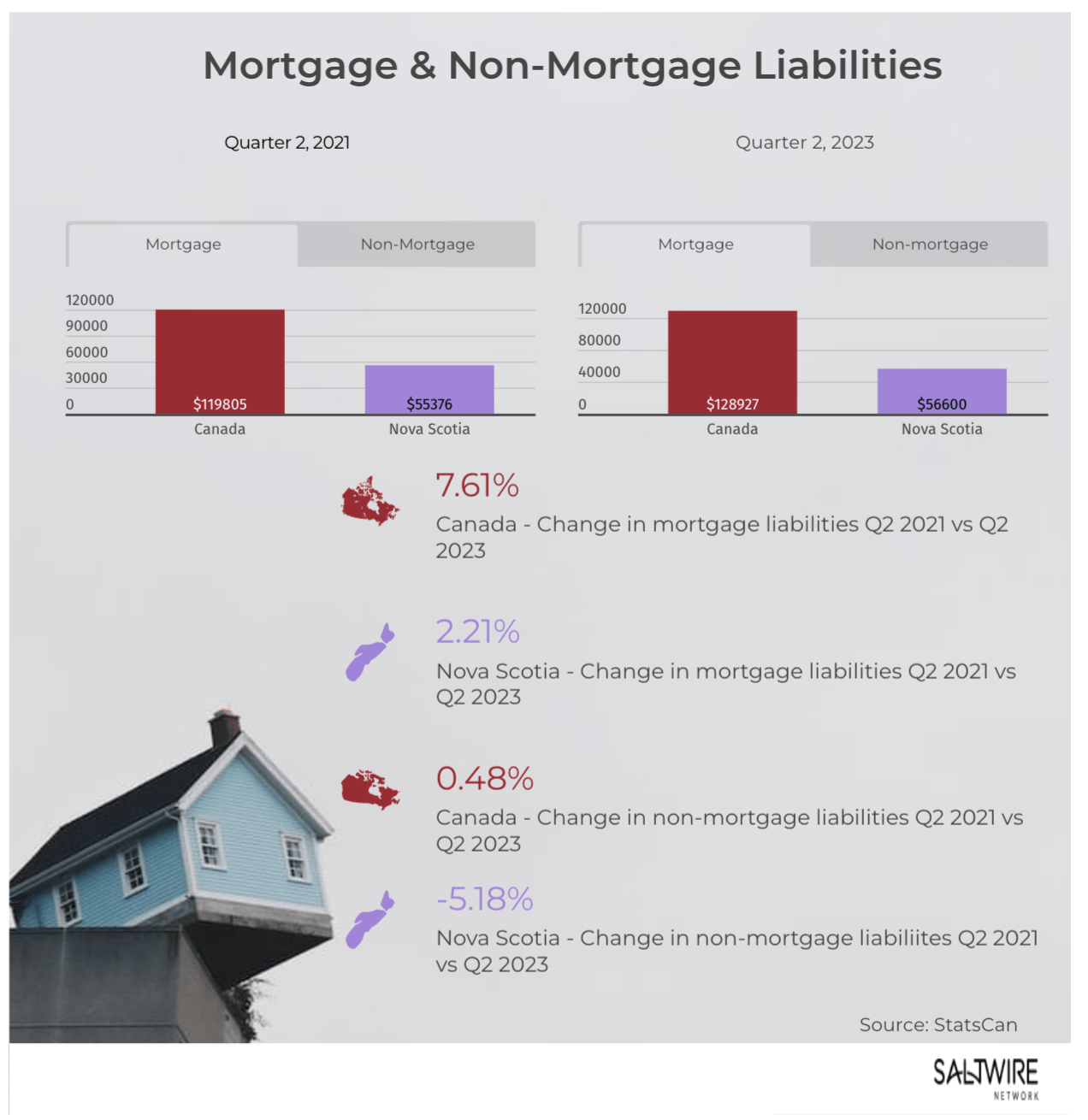
Living in his car
Love brought Shaun Young, 61, to Cape Breton from British Columbia. He immigrated to Canada from the United Kingdom about 20 years ago and was married when he met his Cape Breton “soulmate” online.
About three years ago he decided to leave the West Coast and move to Cape Breton to live with his soulmate.
During his move, Young said he found out his soulmate was still married and that he couldn’t live with her.
Young continued to Cape Breton and tried to rent an apartment but said he was consistently denied.
“They wouldn’t rent me an apartment because I didn’t have an income because I didn’t have a job here,” said Young.
“I didn’t have any pension or anything like that, although I had like $30,000 in the bank, they wouldn’t rent to me.”
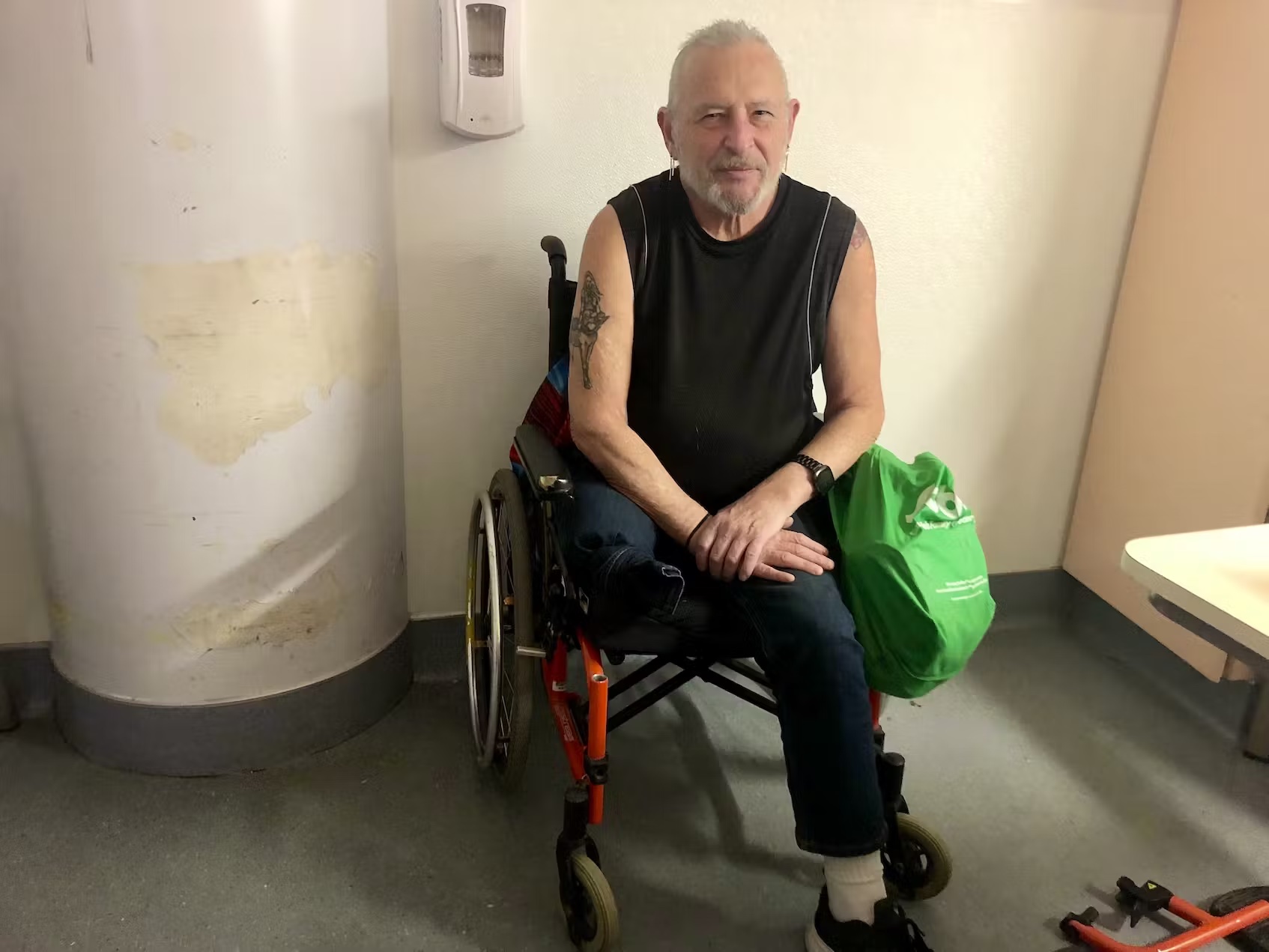
For two years, Young lived in motels in Cape Breton when he was here. He also spent time in British Columbia and Alberta, where he sometimes went to work.
Feeling he had nothing left in B.C., Young chose to stay in Cape Breton.
Young estimates he spent at least $20,000 on motel accommodations over two years. A year ago, he began living in his car when his finances were depleted.
“I tried to rent an apartment, you know, up until just before I was (admitted) into the hospital),” Young said.
“But there’s only rooms and … they have a room but they share the kitchen between eight different people and so on. And they’re like $900 a month. I couldn’t afford that.”
As a result of Young’s last mental health crisis, he needed to have one of his legs amputated.
Because of this, he couldn’t be released to live in his car and since June 5 has been living at Cape Breton Regional Housing.
While the hospital seemed to be a means of temporary housing for Young, it appears the longer stay might have helped him in the recovery of his mental health.
“I’m feeling better than I’ve been in a long time. They are really good to me in here. I have made a wonderful friend and her mother, who have introduced me to their friends,” Young said. “I have a good support system of wonderful people now. My mental health is much better now. It’s just my physical health.”
Young is expected to move into a community housing unit in Sydney Mines in December, which will be close to the rehabilitation hospital where he will have appointments for his leg.
Housing solutions
A report done by the Canadian Observatory on Homelessness in 2021 found there were 325 people experiencing homelessness. It is generally accepted that this number has increased substantially and, if similar to the Halifax area, could have doubled.
In October, the province announced some strategies to help unhoused people with shelter through the winter. These include:
- $180,000 to campground in the Halifax area to stay open for people living in RVs.
- Purchase of 200 Pallet Shelters for people living rough in Nova Scotia.
- Investment in tiny home village pilot.
Different shelters
The tiny home village will be in Lower Sackville and will be the first of its kind in Nova Scotia, aimed at helping provide low-income housing, with rent being set at 30 per cent of the person’s income.
Another initiative which is planned to help people living rough this winter is Pallet Shelters.
These one-room units provide a bed, desks and clothing storage. Like the tiny home village, these shelters will be constructed in groups. The groups will be no less than 10 and no more than 30.
The province is purchasing 200 of these units at an estimated cost of $7.5 million, with 100 allocated to the HRM.
“When we were coming out of last winter, we knew we had to do really proactive planning … pallet shelters is actually an international leader in this area,” said Joy Knight, executive director of employment supports and income assistance.
“(Through) our research about best practices and what’s the right approach to go forward that most understands and responds to the needs of people who are sleeping rough. Pallet Shelters was the best.”
The shelters are expected to be up in early 2024 and half are going to the Halifax area. When Knight spoke with the Post on Nov. 22, she said the province hadn’t decided where the others would be going and was currently receiving pitches from municipalities.
Knight said they haven’t decided where the others will be distributed.
“We are the first province to purchase them and we’re really proud of the partnership we have with Pallet and the work that we’re doing with them to get them implemented here in Nova Scotia,” Knight said.
“They are the only company that is first voice developed, first voice built and continuously first voice informed.”
These emergency housing shelters, which will house one or two people, will have wrap-around supports such as food, clothing and health care.
By publication time, the government was still working on getting needed supports – such as water and toilets – at the first location so the company could ship the temporary shelters.
A graduate of the Bachelor of Journalism program at Carleton University (Ottawa) with a double major in English Literature, Nicole is a multi-media journalist with Saltwire at the Cape Breton Post.

